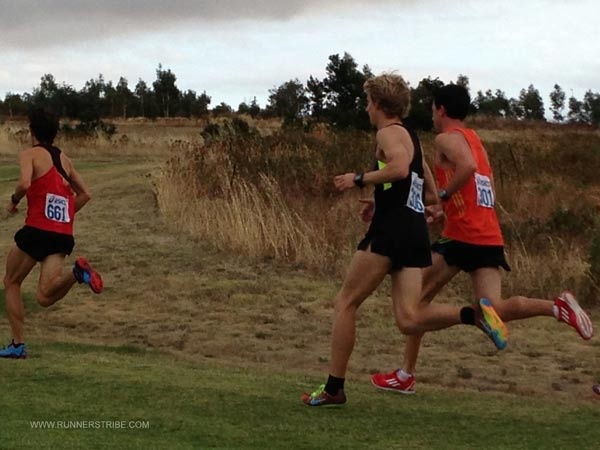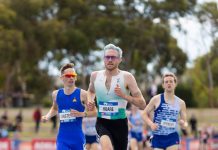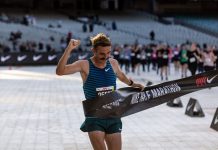Decisions & Definitions: The Runner & The Working Man
“Regret for the things we did can be tempered by time. It is regret for the things we did not do that is inconsolable.” Sydney J. Harris
I run. I have done so for as long as I can remember, and with an increasing degree of seriousness in recent years. This has been accompanied by a marked improvement in performance, to the extent that a number of people close to me, with sufficient knowledge to form such opinions, have suggested Australian representation may be on the horizon.
But I have never thought of myself as “a runner”. To do so would elevate the act of running to my primary purpose, relegating all else to simply “a means to an end”. Like most of society, I have preferred instead to let my work define me.
It is not without good reason that the question “what do you do”, invariably raised during introductory formalities, is almost universally accepted to be in reference to a person’s profession. Work empowers and provides a unique sense of identity, while at the same time drawing workers everywhere together into society. I am no exception to this – I enjoy the mental stimulation that work provides, and the belief that my work provides a valuable contribution to someone other than myself.
In October last year I took up the role of Communications Officer with Athletics Victoria, having graduated from RMIT University with a Bachelor of Journalism almost 12 months earlier. It was not a true journalism role – the message was always tailored for the benefit of the organisation. But for someone who had chosen their career path with the view that it might be fun to write about sport, it was a chance to do just that – with commentary and on-camera opportunities to boot. What’s more, I felt it gave me the chance to help shape a sport I felt incredibly strongly about. The hours were long – sometimes over 70 a week – and the work itself often thankless, but it gave me a sense of fulfilment I had never known before.
When just last week I began as editor of Run 4 Your Life magazine, one of Australia’s foremost running publications, it was therefore significant for two reasons. One, because it was the end result of a carefully considered career choice. More importantly, though, because it was a career choice in which the career itself was a secondary consideration.
Dragging myself from the warmth of the bedroom and into the bitter pre-dawn cold three mornings a week as part of a weekly 150km training regimen, I knew the term “casual hobby” no longer applied to my running. It transcended passion to the point of obsession when, to combat torrential rain and 12-hour work days, I found myself scanning the web for 24-hour gyms at 10:30pm on a Thursday. And by the time full weekends of work were being capped with two-hour 2am Monday runs, the full-blown madness had well and truly set in. But with blinkers firmly attached I pressed on, stupidly and stubbornly, insisting my running was merely an escape from life and not life itself.
When the Run 4 Your Life offer presented itself in July this year, I had my reservations. True, it was a role more in line with my journalistic roots – and as editor, no less, a position with a level of authority and esteem I had never known. But it was also a part-time position with a part-time salary. For someone looking to further their career, financially or otherwise, the move from full-time to part-time is rarely a step forward. Accepting the offer would be an admission from me, the once-proud working man, that my career was no longer my number-one priority.
But if I could overlook the insanity of my chaotic training schedule, race days were another matter entirely. With AV responsible for many of the events I wanted to compete in, racing was often not possible. When it was, it meant balancing racing with work duties, a combination met with justifiably begrudging approval from my superiors. Far from enjoying the chance to experience the best of both worlds, these occasions were generally met with a feeling of sick panic, and a sense of overwhelming dread that both my work and my racing would suffer as a result of each other. More often than not, both did.
The final straw came at the Victorian Cross Country Championships, where I managed an unconvincing third place in the men’s 12km after six hours on my feet throughout the morning’s junior races. I had stood on the start line physically, mentally and emotionally exhausted, and spent much of the race in which I had come second the previous year staring at the very real possibility of missing the top-six placing required for automatic selection for the Australian Championships. Having arrived in the early-morning mist, I left Bundoora Park in fading sunlight, with a full evening of post-event work ahead of me, feeling emptier than I had in a long while.
I have always loved the act of running itself. There is a certain exhilaration that comes with the journey – the feeling of being at one with my surrounds, with only the steady cadence of my footfall and gentle rush of air past my face to break the silence. But race day has always been the driving force behind my running; the army of steely-eyed warriors falling into formation on the start line, both friend and foe alike – united in the struggle yet divided in the quest for glory; the crack of the starter’s pistol, sending forth a burst of adrenaline to unleash the competitive beast within; and the solitary triumph of knowing my successes were mine and mine alone. It was, quite simply, what I lived for, and it wasn’t until it was compromised so severely that I was finally able to admit this to myself. Suddenly, it was overwhelmingly clear what had to be done.
It is early days in my new role with Run 4 Your Life. Adapting to a working life without the structure that an office environment provides has been a challenge, but already the benefits for my running are clear. I have more energy, am keeping sensible hours, and already planning a trip to California for some races in the first half of next year. What’s more, the work itself is tailor-made for my editorial background, and I am looking forward to the chance to exert my influence on the magazine and help shape its future.
I am mindful of my new financial constraints, and have adjusted my budget and savings goals accordingly. Increasingly, I am aware of the possibility of failure, and that despite giving myself every opportunity to succeed with my running, there are no guarantees. What then for my next move? What will a prospective employer think of a man willing to sacrifice a full-time career to run around in circles? They couldn’t possibly understand – sometimes I barely understand myself.
But with the raw emotion of a race day gone wrong now a distant memory, I remain convinced that I have made the right choice. I am where I am because of a rare and wonderful opportunity – an opportunity I chose to take. To remain where I was would have been to let that opportunity slip by. And no matter what happens from here on in, I would rather live with a decision that comes back to haunt me than have made no decision at all.
I am the editor of a prominent sports publication. True to his original ambition, the working man lives on. But I am also a runner. And the next time a friend of a friend asks the all-too-familiar question, I may just have to think twice before I respond.





























